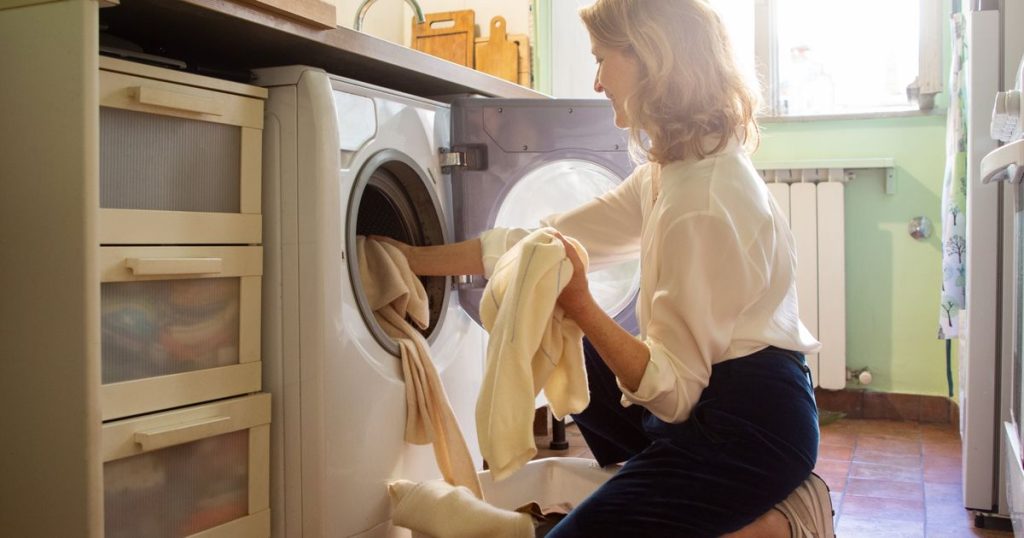The Importance of Cleaning Your Home Appliances
When we think about cleaning our homes, we often focus on the visible surfaces like floors, countertops, and sinks. However, there’s one area that’s often overlooked but is just as critical: our appliances. Appliances like washing machines, dishwashers, coffee makers, dryers, and microwaves work tirelessly to make our lives easier, but if they’re not properly maintained, they can become breeding grounds for mold, bacteria, and other harmful substances. Neglecting these machines can not only reduce their performance and lifespan but also pose serious risks to our health and safety.
The Washing Machine: A Hidden Haven for Bacteria
One of the most commonly overlooked appliances is the washing machine. While it’s designed to clean our clothes, it can easily become a hotspot for bacteria and mold if not properly maintained. Patric Richardson, known as The Laundry Evangelist, explains that we often forget that the appliances we use to clean our belongings also need regular cleaning themselves. If your clothes come out of the wash smelling unpleasant, it could be a sign that bacteria have taken up residence in your machine.
Jason Tetro, a microbiologist and author of The Germ Code, notes that washing machines can harbor a variety of bacteria, including fecal and skin bacteria. Additionally, leftover detergent and fabric softener residue can build up inside the machine, affecting its efficiency. The frequency of cleaning depends on your laundry habits and the type of detergent you use. If you use a lot of detergent or fabric softener, you’ll need to clean the machine more frequently. As a general rule, experts recommend cleaning your washing machine once a month.
To clean your washing machine, run a cup of bleach through a hot water cycle or use the machine’s built-in cleaning function. Don’t forget to wipe down the inside, including the gasket (the rubber seal around the drum), and clean the dispenser dish by rinsing it under warm water. After cleaning, leave the door open to allow the machine to dry thoroughly.
The Dishwasher: More Than Just a Cleaning Companion
The dishwasher is another appliance that often goes uncleaned, despite its crucial role in keeping our dishes spotless. If the dishwasher isn’t regularly maintained, its filter can clog, leading to poor drainage and the buildup of smelly gunk. Over time, mold and bacteria can grow inside the machine, contaminating the dishes and utensils you put in, and even harming indoor air quality.
Michael Rubino, a mold and air quality expert, recommends deep cleaning your dishwasher once a month, though the exact frequency may depend on how often you use it and what you’re washing. For example, if you frequently wash greasy pots and pans, you may need to clean it more often. To clean your dishwasher, remove and wash all removable components, scrub the interior with white vinegar or a botanical cleaner, and run a vinegar rinse on the hottest setting. Don’t forget to clean the filter, drain opening, and crevices, and leave the door open to allow it to dry completely.
The Coffee Maker: A Brewer of More Than Just Coffee
Your coffee maker is another appliance that may need more attention than you realize. Hard water minerals can build up inside the machine, affecting its performance and the taste of your coffee. Ian Palmer-Smith, an appliance repair expert, notes that these mineral deposits can also create an environment where bacteria and mold thrive. In fact, a study found that half of all coffee maker reservoirs contain mold or yeast.
Cleaning your coffee maker regularly can help eliminate these issues. Rubino recommends deep cleaning once a month using a brand-specific descaling kit or a mixture of equal parts water and white vinegar. Run the solution through the machine, let it sit for 30 minutes, and then complete the cycle. After each use, wash the removable parts, such as the water reservoir and carafe, with soap and water, and wipe down the exterior with a botanical cleaner.
The Dryer: A Fire Waiting to Happen?
The dryer is another appliance that’s easy to neglect, but failing to clean it can have serious consequences. Lint from your clothes builds up after every cycle, clogging the vents and taking longer to dry your clothes. Over time, this lint can become a fire hazard. In fact, according to the U.S. Fire Administration, failure to clean was the leading cause of clothes dryer fires between 2018 and 2020.
Kadi Dulude, owner of Wizard of Homes NYC, recommends cleaning the lint filter before each use and vacuuming the lint compartment regularly. The dryer vent, which carries lint and moisture outside, should also be cleaned at least once a year, depending on usage. To clean the interior drum and exterior, use a damp microfiber cloth with a botanical cleaner, and make sure to dry everything thoroughly. Always disconnect the dryer from the power source before cleaning.
The Microwave: A Magnet for Food and Germs
Last but not least, the microwave is an appliance that’s often overlooked but frequently used. Food particles and splashes can dry onto the walls and ceiling, creating bad odors, harboring mold and bacteria, and even damaging the internal components. Additionally, the handle of the microwave can be one of the germiest places in the kitchen.
To clean your microwave, combine lemon juice or white vinegar with water in a microwave-safe bowl, heat it on high for five minutes, and let it steam for a few minutes before wiping down the interior with a damp cloth. For tougher stains, put the microwave plate and revolving ring in the dishwasher. Don’t forget to disinfect the handle using hydrogen peroxide or citric acid.
The Bottom Line: Why Cleaning Appliances Matters
While adding these tasks to your cleaning routine may seem like a hassle, the benefits far outweigh the extra effort. Regularly cleaning your appliances can prevent costly repairs, extend their lifespan, and improve their performance. More importantly, it helps protect your health by eliminating mold, bacteria, and pathogens that can spread through the air or onto your food and clothes. Additionally, maintaining your appliances can help prevent fires and other safety hazards. By making these routines a priority, you’ll not only keep your home cleaner and safer but also ensure your appliances continue to serve you well for years to come.















